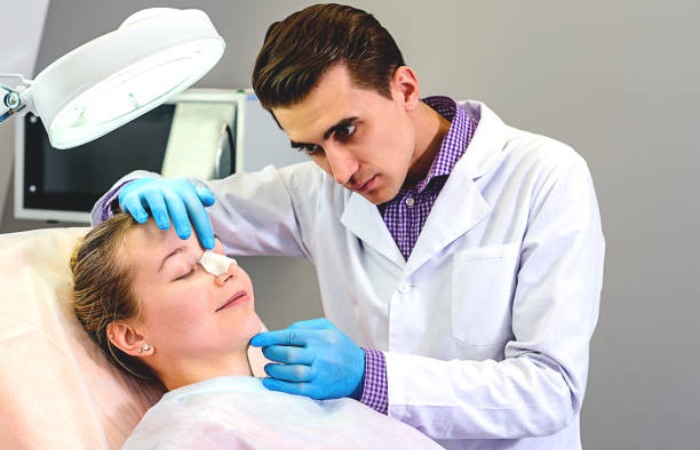Rhinoplasty Surgery often christened a ‘nose job,’ is a surgical procedure that aims to reconstruct your nose by altering its shape, size, or function. Most people get rhinoplasty because they are unhappy with how their nose looks, and it’s a pretty familiar feeling. Aesthetically enhancing our faces has never been so popular, with cosmetic surgery at its peak.
The nose is the most significant and prominent face part and dramatically impacts our facial harmony. When getting rhinoplasty surgery, you must ensure you know how to correctly prepare for it to minimize the chances of it becoming a health risk. This can range from altering your diet, changing your medication intake, and increasing resting hours.
Throughout this article, we will discover how to prepare your body for rhinoplasty surgery so that everything goes as planned with your procedure. By taking our advice, we hope that you also experience a faster recovery time after your surgery.
Rhinoplasty Preparation Strategy

Stay Hydrated
Hydration is vital for our overall health, as it regulates body temperature, protects joints and organs, delivers nutrients to cells, and reduces headaches. Staying hydrated is even more critical before your surgery for several reasons:
- Increased Comfort: Reducing thirst and preventing the mouth from drying up can help avoid nausea before and after surgery.
- Better Recovery: You can recover faster post-surgery if you keep hydrated beforehand, as it will help support bodily functions and heal wounds quicker.
- Blood Pressure Management: Keeping hydrated will keep your blood pressure stable, which can improve your organ function. It also makes anesthesia administration safer.
- Reduce Anxiety: Many people suffer from anxiety before surgery, and keeping hydrated can help with easing these symptoms.
- Regulates Body Temperature: A stable body temperature for surgery is critical, as it helps prevent surgical site infections.
Eat Healthy
Eating a healthy diet before surgery is crucial because it helps your body heal, recover faster, and reduce the risk of complications. Your body needs energy to help heal wounds and prevent surgery infections, so you must eat a healthy diet to get the perfect amount of nutrients and calories to feel your fuel. Protein is ideal for surgery. Suitable protein bases include lean meats, fish, eggs, and beans.
Keep Face Clean
Keeping your skin fresh and clean in the final week before rhinoplasty surgery is crucial, as you need to ensure that there is as little dirt as possible on the face when surgery takes place. Use a mild cleaner to wash your face twice a day. To help remove dead skin, you can also lightly exfoliate every other day.
Optimise Sleep
Getting sufficient rest on the build-up to your rhinoplasty surgery is very important, as your body needs the energy to get through surgery and recover afterward. The night before your surgery is specifically essential. Feeling anxious or nervous the night before is typical, so your sleep can be hampered and lead to sleep debt. You can resort to taking over-the-counter sleep aids if you feel you won’t be able to sleep.
Build Recovery Space
After your rhinoplasty surgery, you’ll want to get home as soon as you can and jump straight into a comfortable space that will help you with recovery. Before your procedure, you should take the time to build a recovery space that you can utilize after your surgery. When doing this, you need to think about the following:
- Medical supplies
- Pain medication
- Comfortability options
- Healthy meal preparation
- Entertainment selection
- Day-to-day care items
Arrange Post-Op Care
You’ll likely need support from friends or family after your rhinoplasty surgery, as you’ll need time to recover correctly before you can complete every task like you used to. Arranging someone to drive you home, help care for children or animals, and sort out meal preparation might benefit your recovery process.
Stop Certain Medications
You will need to take some medications after your rhinoplasty procedure, which your surgeon will suggest. However, there will be some medications that you should avoid as they can interact with anesthesia and have the potential to cause blood clotting. These medications include ibuprofen, aspirin, and blood-thinning medicines. To avoid exact medications, you should seek advice from your surgeon.
Avoid Smoking and Drinking Alcohol
Bad habits can influence many aspects of our lives and drastically impact our health and well-being. Smoking cigarettes and drinking alcohol are two activities that are well-renowned for poor health. While these should be avoided in general, they are particularly crucial in the build-up to Piezo Rhinoplasty surgery. They can hinder your recovery process and increase the chances of post-surgery complications.

